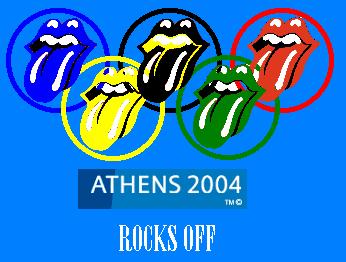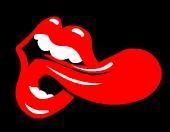| August 1st, 2004 01:28 PM |
|
|
| Ten Thousand Motels |
The Inventors of Commercial Country Music
By WILLIAM HOGELAND
Published: August 1, 2004
(NYT I think????)
OR fans and scholars alike, the music of the Carter Family has long served as a kind of gold standard of American roots music. A trio from Appalachian Virginia, the Carters began recording in 1927. Their deft playing and close-harmony singing made them a huge commercial success, and their songs, cutting across a variety of categories � blues, parlor pop and folk balladry among them � remain the core of a classic country and bluegrass repertory. Many of the young roots-music and alt-country fans who listen to Gillian Welch and Wilco are also fervent admirers of the Carter Family catalog.
So the arrival of "The Unbroken Circle: The Musical Heritage of the Carter Family" (Dualtone), a well-deserved tribute album that features high-profile country and folk artists, is not surprising. Even just two or three of its covers of Carter Family songs will, for many listeners, justify the price of the disc. Nonetheless, the album has some telling weaknesses that stem from longheld misconceptions about the Carter Family's music.
Johnny Cash and his wife, June Carter Cash (a Carter family daughter), both of whom died shortly after contributing to the album, understandably sound old. That's not necessarily a bad thing. June Carter Cash's "Hold Fast to the Right" shows how the croaking of an aged singer may be perfectly suited to a song of hope and farewell.
But what's striking about many of the other singers on the album is how old they sound, too. Performances by Emmylou Harris, John Prine, Willie Nelson, George Jones, Kris Kristofferson, Del McCoury and others are uneven, varying in originality and verve. More important, though, none of these artists is under 40. Most are over 50 (though Ms. Harris is joined by children on her track). These are musicians who, in the 1970's, began the search for tradition and authenticity that continues to mark the roots revival today.
The inclusion of younger artists might have given the project more vitality and thus more credibly demonstrated the undying Carter tradition to which the album's liner notes, and even its title, appeal. And if the Carters are a mother lode of American vernacular music, why wouldn't we want to hear their music interpreted through blues, hip-hop and punk rock, as well as folk, country and bluegrass?
Reverence for tradition may also explain the uninspired predictability of some of the performances � Shawn Colvin's dutifully folkie "Single Girl" and Marty Stuart's portentous, rock-influenced "Never Let the Devil Get the Upper Hand of You." In particular, a track by Janette and Joe Carter, octogenarian Carter children who have carried on the family legacy, points up the album's insistent emphasis on an amateur, family-singalong spirit, widely supposed to be the Carter Family's great contribution to American music.
The Carters can indeed seem like emissaries from a lost world of backwoods, nonprofessional music-making. A. P. Carter, who served as the trio's impresario and sometime bass singer, went from house to house learning songs by ear (and later often claiming authorship of them). Sara Carter, married to A. P., was the lead vocalist whose alto, sometimes androgynously low, brought the group success in its day. Maybelle Carter, Sara's cousin (and married to A. P.'s brother), played guitar lines that have since become the most widely emulated aspect of Carter Family music. In publicity photographs they wore formal attire that today makes them look more American-gothic than showbiz-hillbilly, and they sang and played in a straightforward way that, while intended to make their words clear, can seem plain and stiff to first-time listeners.
Yet repeated listening opens up the gorgeous sonic world that the Carters offer and calls into question the folk context in which their music is usually placed. The Carters' favored rhythms often involve the syncopation of piano ragtime and jazz, cutting-edge urban sounds in their day. Even their most minimalist songs could be tricky, full of backbeat and surprise. They sang gritty and comic blues, ornately poetic hymns and topical "event songs" that describe train wrecks and other newsworthy horrors. Maybelle Carter's guitar playing, anything but stiff or straightforward, is witty and fleet � really a kind of swing � and the huge catalog that A. P. Carter amassed is filled with sentimental songs marked by references to mountain flowers, simple country churches and pale dying maidens. These were not the ancient, anonymous Anglo ballads they might seem, but instead were parlor-and-saloon songs, often in waltz time, based on sheet music published throughout the 19th century and then absorbed in the repertories of amateur Southern musicians.
By turning themes that were already outmoded among music sophisticates into a porch version of ragtime and blues, the Carter Family invented commercial country music. Not only bluegrass and folk, but Hank Williams's honkytonk, Bob Wills's western swing and Elvis Presley's rockabilly, with all their hustle and glitz, are also among the Carter Family's direct heirs.
For all its faults, "The Unbroken Circle" offers tracks that evince the clever, idiosyncratic artistry that is the real Carter legacy � Willie Nelson's solo version of "You Are My Flower," based on a guitar figure entirely different from Maybelle Carter's original jaunty rag, is one; John Prine's raging "Bear Creek Blues" is another. Perhaps the most exciting reading is by the singer-songwriter Rosanne Cash (Johnny Cash's daughter) on "The Winding Stream." A stately Victorian reverie in waltz time, the song conjures a lover's afternoon idyll. Ms. Cash's careful, utterly unself-conscious delivery brings to light the full literary and pop ambition of the song, and by making it irresistibly her own, she offers a beautiful tribute to what the Carter Family could do in recording after recording.
[Edited by Ten Thousand Motels] |
| August 1st, 2004 02:44 PM |
|
|
| FPM C10 |
Thanks for posting that, TTM.
I really love the Carter Family, but am fairly new to their canon, so reading about the misconceptions surrounding their music was very informative. |
|

 CHAT
ROOM aka THE FUN HOUSE] [
CHAT
ROOM aka THE FUN HOUSE] [ RESTROOMS]
RESTROOMS]